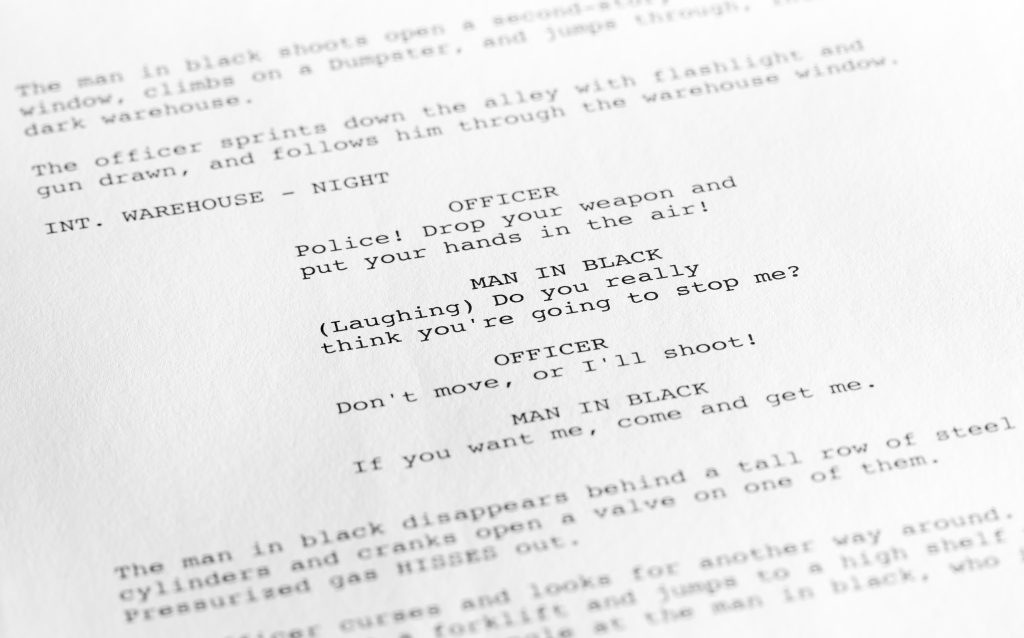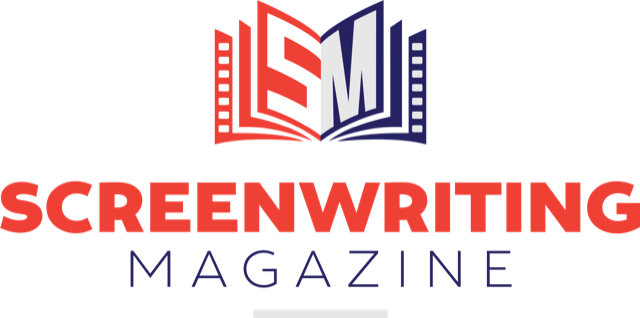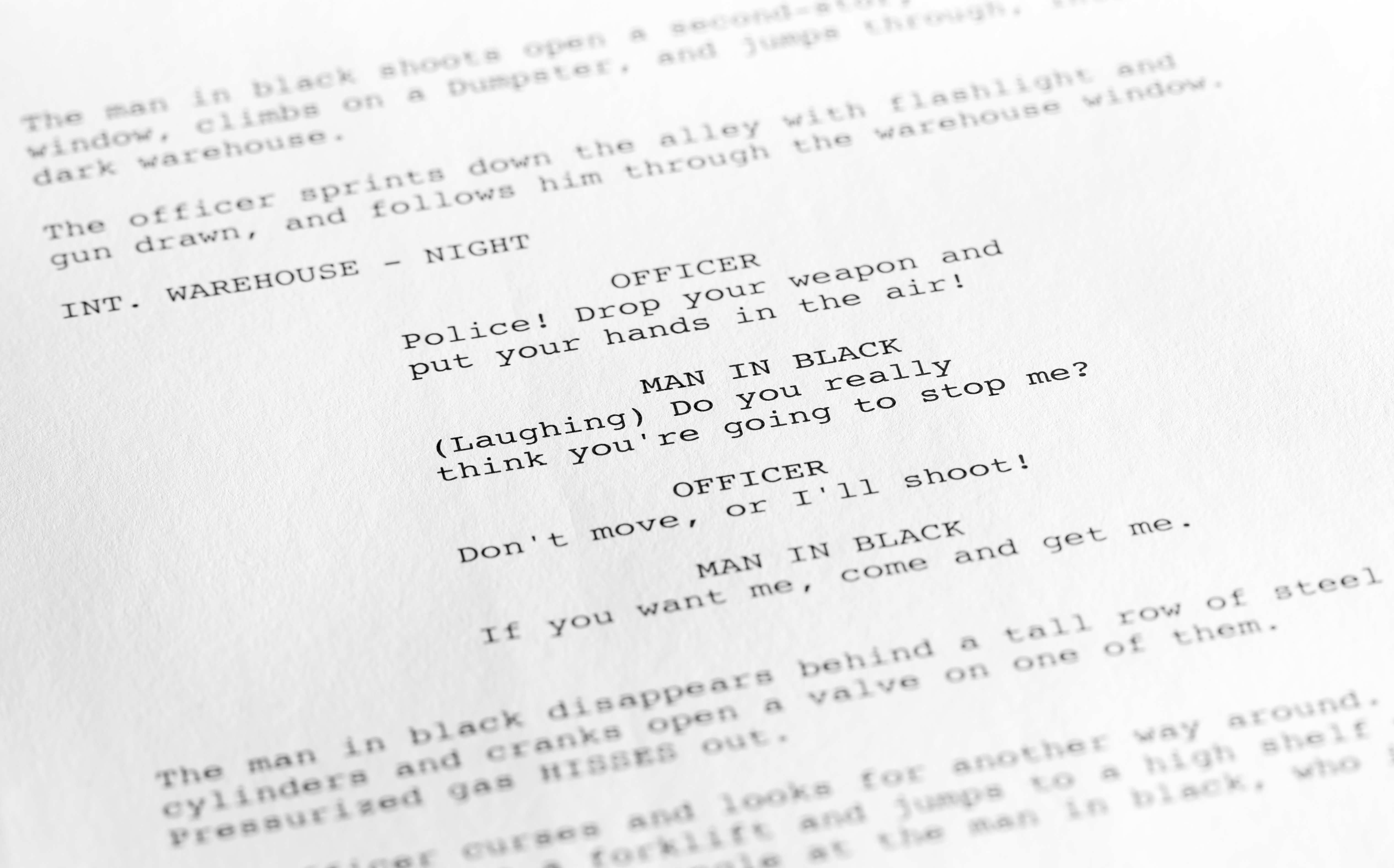
You know the story you want to write. You’ve learned the formatting rules for writing a screenplay. You’ve drafted and drafted and drafted. And, now you want to make sure that when your spec script gets read, everyone loves it. How does that happen? I can hear you in the back row saying, “I wrote a good story. I don’t need to do anything else.” Well, that’s not always enough.
When you send your script out to an agent, it will be handed off to a reader or an intern for “coverage,” a report generated by the reader telling the executive what the story is about and whether to pass or consider the script. And, if that person votes to “consider,” he or she will convince the agent or manager or production company executive to read. Then your script is passed up the food chain to the next person and hopefully more producers, managers and executives will read your script. The more reads the better.
As a screenwriter, your material has to survive layer after layer of gatekeepers until it is finally bought and produced. The way you tackle this multi-reader system of weeding out the unwanted in Hollywood is by learning how to win the read.
Back in the golden age of Hollywood, studio executives used to hire a writer to do a “polish” draft, which was essentially a draft of the script re-written to be a great read. We don’t have that luxury nowadays, so it’s up to you to polish your draft.
Here are five tips on how to make that happen:
No. 1 — Avoid film speak.
Newbie screenwriters often rely heavily on camera angles and/or phrases like, “We ZOOM IN on Bob sitting on his couch…” You really should avoid this kind of thing as much as possible. You don’t want your reader thinking about cameras or audiences or anything other than what’s going on in the movie you’re trying to sell. Tell your reader what’s on the screen. Instead of “EXTREME CLOSE UP… Bob’s eyes…” Try “Bob’s soulful eyes brim with tears.” Write something that sounds like a close-up without calling out a camera angle.
No. 2 — Write with expression.
Some critics might suggest not putting facial expressions into your script, that it offends actors. That may be true of a production script, but it’s not true of a spec script. You have to convince at least a half dozen people that your script is a great movie before an actor ever sees it. Adding in phrases like, “Bob’s face falls,” “He’s crushed,” or “Betty smiles like she just won the lottery” can go a long way toward making your script an emotional read.
No. 3 — Make your narration count.
In general, between your slugline and your first line of dialogue you have four, maybe five sentences. You have to make the most of them. And what that means is that you have to do more than move your characters around. Write this paragraph as though it was right out of a novel. Use metaphors and similes. Use vivid, concise description. Keep your character descriptions brief and evocative. I once described a character as “standing there like a question mark,” and I received several compliments on that tiny, little phrase.
No. 4 — Have an attitude.
Inserting yourself into the script with funny asides and the occasional commentary is generally a bad idea. Generally. It can, however, work well with comedy, or even horror. Remember, you’re telling a story. You can add a joke to the narration or include funny stage directions. Yes, the audience will never see it. But your goal is to make your first readers laugh. A daunting task when that audience reads for a living.
No. 5 — Learn to mimic.
Years ago, I was with one of the hot management companies. I pitched them some scripts, and we decided I’d write an “office place” romcom. I went off and spent months writing it. When I turned it in, my manger said, “Oh, I heard about a competing script this weekend.” Meaning that my project was dead in the water.
She sent me the competing script, though, which I read. It was similar to my script, but not really. It was also terrible. I told my manager it would never get made into a movie and she said, “Oh no, so-and-so’s attached. The studio paid $2 million for it. It’s a go.” Well, it never got made. But it did teach me something important. The script did one thing well; the writer made the main characters sound exactly like two of the hottest actors at the time (one of whom had attached herself).
If you can make your characters sound like specific movie stars, you’ve vastly increased the chances of selling your script.
So, in your mind, separate “the read” from the story. You may have written a great story but if it doesn’t read like a great movie, no one will see it. Make the experience of reading your script pleasurable, and you substantially increase the chances of your story getting made into a movie.
Do you have any ideas on how to improve the read? We’d love to hear them.




11 Replies to "Winning the Read: Five Tips to Make Your Story Shine Through"
Kieth August 22, 2016 (11:05 am)
Thanks for the tips. Out of cuiosity, has Mr. Thornton ever had one of his scripts made into a movie? Which one(s) ? Good advise with demonstrated results is always more reliable than good advice.
Marshall Thornton August 22, 2016 (11:41 am)
Thanks for the comment. After film school I had a couple of attachments and did an indie adaptation. None of the projects went anywhere, which happens a lot in Hollywood. That is ultimately the fate of a lot of really great scripts. Eventually I decided fiction was a better fit for me. What I learned at UCLA about story, though, I use every day.
Nandor August 25, 2016 (11:22 am)
Hi Keith, stay positive and acknowledge every opportunity on the road. If you want advice from Spielberg get him paid. Although for your free beefsteak don`t wait your first Oscar appreciate the thinktank here gathered. Strong ideas willpower and imagination pave the way on the road. More you appreciate them more you get closer. Skepticism is like acid for celluloid heros. It kills them and puts your idea on the low road. Do not use it.
For me when I have a story first I make the poster of the film. Yes maybe this is the last stage, but it helps me to come into the story, and the dynamics, that strong will what makes every baby to be born. The poster is for me like the pain of birthing for the pregnant woman. and yes Keith I have not even won Oscars and I do not even know English Grammar but I will have even my first film before you if you continue this way.
Sorry Keith.
Scott Canell August 22, 2016 (12:44 pm)
All great tips. Unfortunately, as a studio reader, more and more of my fellow readers are unqualified and undereducated. Many today don’t understand style, for example. You would think these partial gatekeepers to a billion dollar industry would be carefully screened and selected. The reality is almost the opposite.
GKNoy August 22, 2016 (5:01 pm)
Thanks for sharing, Marshall – and Scott. It seems that many don’t understand subtext either, or ensemble pieces built around a theme. (I’ve seen those one protag checklists most base their “analyses” on.) Why do think they’re not more carefully selected?
Is it because most are hired only to deal with the slush pile to begin with, and that their recommendations are not wanted? I know that the couple of times I’ve gotten enthusiasm and recommendations from readers, it got me nowhere and no further reads, in any case.
Michael August 24, 2016 (7:39 pm)
Awesome advice, Marshall. Stuff like this I save for future references.
Anyway, I’ve had a script sent to UTA by the son of a Hall of Fame ex-motocross racer Steve Wise’s son Josh, who was repped by a big Agent there.
Two readers & and loved Racers Edge, Mitchell Gossett, super Agent, read and loved it enough to put his name and reputation on the line. I thought that was it, I was going to see my name in lights or at least on screen….
Then one month turned to two and two to three. What happened?
Someone in the Lit department decided that motocross wasn’t a big draw in film…idiots obviously never went too MetLife Stadium and see not a single seat available… Or any other stadium where the AMA Supercross (indoor) series takes place.
So now I’m trying a different angle. As a former well known journalist for the sport, I’m seeking support from the industry itself.
Star Trek got made because toms of people insisted they wanted to see this “western saga in deep space.”
Wish me luck guys. 👆💪🙏💗😏
Best of luck on your endeavors as well.
Marshall Thornton August 24, 2016 (10:59 pm)
Timing is so much of selling a script. Keep putting it out there.
Michael August 24, 2016 (7:46 pm)
Subtext is the tightest to get a handle on. It depends on the type of study it is but if there is conflict there’s a chance for subtext.
Mike Laman August 25, 2016 (8:58 pm)
I just finished my fourth script today. It is really the first draft. I have three others done which could use rewrite. I learned three things over the past three years of writing. One- be sure you have a solid logline before writing, two- outline your story–know it top to bottom, look for structure, three: read scripts written in the genre you are doing. If you do thrillers, read those, if you do horror do those–also watch the DVDs of those scripts–learn turning points, structure, and character development. You must teach yourself screenwriting –read books, take a class, but stay on a writing schedule. I leaned my writing does improve with practice. Also you will have to pitch your projects in person or in writing at some point to make a sale. Learn how to pitch–some great books on Amazon are available. Good luck!
Jack Comeau September 6, 2016 (2:54 pm)
Marshall, great advice that does run counter to what many other people are saying. I’ve always disagreed with that, stripped down, only what you can shoot, philosophy. Reading a screenplay should be a visceral, emotional experience. I resist advice that pretty much tells a scrip must be stripped down to the “Dick, Jane and Sally” level of our first grade books. In a current screenplay, I’d written: He sees the pain glisten of his father’s eyes.— I got ridiculed by a reader for it and told that it should be replaced with: His father looks sad.
I agree completely with your concept. Screenplay get bought because they stir something within the reader. It IS TRUE that the structure of the story is most important, whether you use the standard, Syd Field 3 act structure, The John Truby take on “The Hero’s Journey” The SAVE THE CAT beat sheet, the structure must be there and be solid but, within that, the reading experience should be as emotional as possible.
Marshall Thornton September 6, 2016 (2:59 pm)
Thanks for the comment. And I agree structure is very important.